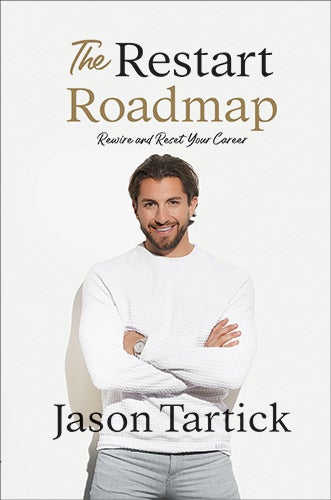Concerned About Your Future? Take Stock Of These Two Things
Break the status quo of your day-to-day job routine and break free of the fear.
Opinions expressed by Entrepreneur contributors are their own.

What are you afraid of? The unknown, of course. That probably includes tomorrow when your schedule looks horrific. Will you get through tomorrow? You will. After all, you got through today.
Will you succeed in this career? Will you succeed as well as your classmates, who, to hear them tell it, are succeeding by leaps and bounds? Will you succeed as well as your big sister, the hot-shot lawyer, or as well as your kid brother who has received more invitations to all-expenses-paid postdoctoral programs than you got to your junior prom?
Maybe worse, if you don’t succeed, will that be okay with you? Will you have any priorities left over from that third-degree probe you did in chapter four that may be able to fill the void? After all, being afraid is supposed to be a driver of a great career. Don’t they tell you that the door marked “fear” is the one you have to walk through to success?
Without a doubt, complacency would be a lot more comfortable than the fear you’re living with. You would plug along each day at the job, and your expectations would never veer out of range of “a job is a job, and it pays the rent.” But you can’t seem to get into that groove or to stop thinking about what tomorrow may bring and worrying about whether you’ll be ready for it. I could tell you that nobody is ready for what tomorrow brings, but you won’t believe it, and you’ll be right. There’s no way around it: being in a career and being afraid of what’s next absolutely sucks.
But one thing I can do is share a lesson I learned from my MBA professors about market efficiency. The market is efficient to the degree to which its prices reflect all the information that is relevant and available as well as information not available but that still plays into the market. Therefore, no one investor can have an advantage over another; all of the information determining whether a stock is undervalued or overvalued, underpriced or overpriced is available and baked into the price. There is also no way to “beat” the market because the real-time information is already reflected in it. That’s the theory of market efficiency.
I like to transfer that to the efficiency of being human. Human survival, like the market, reflects all the information that is relevant and available about each of us, and therefore about you. Your brain contains all the instincts and information developed from birth: the time you took a fall as a little kid and got back up, thus teaching yourself to try not to fall, all the way to those tests you failed or teams you were cut from and how somebody sweet and loving helped you feel better about it. That same brain is brilliantly equipped to bring all those skills to the fore when needed.
So there are two things you need to do if you fear for your future. The first is to tell yourself that being born healthy and with a brain is the ultimate gift. Try to put it to use. One way to use it is to remind yourself that people on their deathbeds tend not to regret what they did in life but what they did not do. Recall the priorities your third-degree probe revealed one more time—maybe recite them aloud every morning and every evening. Remember how you learned not to fall and not to be destroyed by deep unhappiness.
Second, make sure your career “insurance” is up to date. Check your CV or resume, your list of contacts, your accreditations and licenses, portfolio of work, your website, social media profiles, letters of recommendation, reference list—all the building blocks of a professional profile. Be certain everything is in order, up to date with current data, and ready to be accessed at any moment. It means that if you really do need to make a change, you’re equipped and ready. The feeling of career fear can become a comfortable kind of complacency, but it is far from fulfilling. Break the status quo of your day-to-day job routine and break free of the fear.
Taken from The Restart Roadmap by Jason Tartick. Copyright © 2022 by Jason Tartick. Used by permission of HarperCollins Leadership. www.harpercollinsleadership.com.


What are you afraid of? The unknown, of course. That probably includes tomorrow when your schedule looks horrific. Will you get through tomorrow? You will. After all, you got through today.
Will you succeed in this career? Will you succeed as well as your classmates, who, to hear them tell it, are succeeding by leaps and bounds? Will you succeed as well as your big sister, the hot-shot lawyer, or as well as your kid brother who has received more invitations to all-expenses-paid postdoctoral programs than you got to your junior prom?
Maybe worse, if you don’t succeed, will that be okay with you? Will you have any priorities left over from that third-degree probe you did in chapter four that may be able to fill the void? After all, being afraid is supposed to be a driver of a great career. Don’t they tell you that the door marked “fear” is the one you have to walk through to success?





